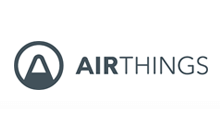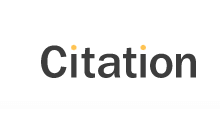 On a balmy evening in early September, I was scheduled to present my Governance Review report to a Governing Board who had invited me. I was unsure that the prospect of sitting in a Zoom meeting would triumph against enjoying the sunset during a surprising London mini-heatwave, but I was pleasantly surprised by the large turn-out.
On a balmy evening in early September, I was scheduled to present my Governance Review report to a Governing Board who had invited me. I was unsure that the prospect of sitting in a Zoom meeting would triumph against enjoying the sunset during a surprising London mini-heatwave, but I was pleasantly surprised by the large turn-out.
A Governance Review can be triggered in a number of ways. The external governance review framework was developed primarily to respond to Ofsted judgements; an inevitable follow-on from a damning report by OfSTED, which found leadership and management - and particularly governance - to be inadequate in some way. It has also been a recommendation in the past by a local authority, keen to promote its own agenda of school improvement. But more and more, governance reviews are being invited by Governing Boards, as a healthy exercise to commission an independent view of their governance practice and audit their own effectiveness.
The purpose of an external review, as defined by the National Governance Association (NGA), is for an independent professional to review governance practice and to make recommendations for strengthening governance in the school.
The Governance Review that I was presenting had included a range of different types of scrutiny: a review of the governing board’s documentation including a school website compliance check, observation of a governing board meeting, a facilitated self-review session for all governors and senior leaders, and a scoping session with the Chair, the Vice-Chair, and the Chair of the Finance Committee, resulting in a final report.
All elements of the review had been undertaken during the Summer Term, which, for all intent and purposes, still had the full flavour of lockdown. Sadly, I was deprived of that whole experience of entering the school: the welcome, the sign-in, the curling visitor badge adhered to a jacket lapel, and the joy of walking along colourful corridors of dynamic displays, before actually shaking the hand of the Headteacher and the Chair of Governors with a smile. It was a shame to miss the feel of the school to put the review into context, and I also cannot wait to get back to the physical world to enjoy all those non-verbal interactions that are so important for building relationships.
However, even though all meetings were virtual and all conversations were over the telephone, there was no mistaking the passion of the governors, which still shone through. And this particular Governing Board was passionate about striving for improvement. I know this because several Governors actually articulated this sentence during the review.
The report I presented was detailed, and set out my own observations as well as capturing the words of the governors themselves during their own self-evaluations. I had added some pages of recommendations and a suggested action plan at the end to help support next steps. But the report was not just a catalogue of things that could be done better or differently; absolutely not. It was also an observation of the strengths of governance at the school, that were self-evident.
I concluded by pointing out that my recommendations were suggestions, my action plan a draft. It would be now for the Governing Board to determine their own journey and decide what was doable, what would be a ‘quick win’, and how they could develop their own effectiveness long-term.
It was a nice way to spend a late summer evening, in the company of governors so committed to their school and their pupils, who were so obviously passionate about striving for improvement.
If you would like to commission a Governance Review for your Board, please contact Sarah Beaumont, Head of Governance at The Education Space.
By Sarah Beaumont
Head of Governance




